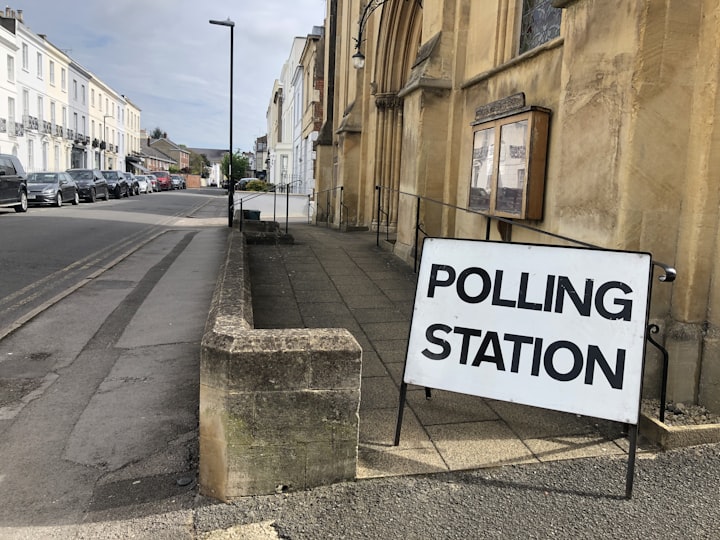"A Shattered Unity
Rebuilding Hope in Local Elections" Synopsis
Title
Synopsis
In a small, tight-knit community called Harmonyville, the upcoming local elections bring about unexpected emotional turbulence among its residents. For decades, this town had prided itself on its unity and collective decision-making, making local elections a symbol of harmony. However, recent events have shattered the trust and camaraderie that once defined Harmonyville.
As the election campaigns kick off, tensions rise, and the town becomes divided along political lines. Friends turn into foes, families are torn apart, and once-strong relationships crumble under the weight of differing ideologies. The deep-seated emotions of fear, anger, and resentment grip the community, threatening to permanently sever the bonds that held them together.
Amidst the chaos, we follow the story of two main characters who find themselves on opposite sides of the political spectrum. Sarah, a passionate activist, believes in progressive change and sees this election as an opportunity to bring about much-needed reforms. On the other hand, Jake, a traditionalist with conservative values, fears the potential consequences of rapid transformation and clings to preserving the town's cherished traditions.
As the campaign intensifies, both Sarah and Jake face personal challenges that force them to question their beliefs and confront their biases. They witness the ugly side of politics, where misinformation, smear campaigns, and the manipulation of public opinion take center stage. Their once strong bond, built on shared experiences and mutual respect, hangs by a thread.
In the midst of this emotional storm, a devastating incident occurs that shakes the entire community to its core. The event serves as a catalyst, forcing the residents of Harmonyville to reevaluate their priorities and consider the true meaning of unity. Together, they embark on a journey of reconciliation and understanding, seeking common ground and the restoration of their shared values.
Through poignant moments of forgiveness, empathy, and compromise, the people of Harmonyville slowly rebuild trust and heal the wounds that divided them. Ultimately, they discover that the true strength of their community lies not in their individual beliefs, but in their ability to come together, respect differences, and work towards a common purpose.
"A Shattered Unity: Rebuilding Hope in Local Elections" is a story that delves into the complex emotions that can arise during local elections. It explores the power of empathy, forgiveness, and dialogue in bridging divides, reminding us of the importance of preserving unity amidst political differences.
The government has a crucial responsibility when it comes to local elections. Local elections serve as the foundation of democracy at the grassroots level, giving citizens the opportunity to elect representatives who will make decisions that directly affect their daily lives and communities. The government's role in ensuring fair and transparent local elections is essential to maintaining trust, promoting civic engagement, and upholding democratic principles.
Here are some key aspects of the government's responsibility to local elections:
Electoral Laws and Regulations: The government is responsible for enacting and enforcing electoral laws and regulations that govern local elections. These laws define the electoral process, including voter registration, candidate eligibility, campaign finance rules, polling procedures, and the resolution of disputes. They should be designed to promote fairness, transparency, and equal participation for all eligible citizens.
Voter Education and Outreach: The government has a responsibility to educate citizens about the importance of local elections, their voting rights, and the electoral process. This includes initiatives such as voter registration drives, information campaigns, and public forums to ensure that citizens are well-informed and empowered to make informed choices.
Election Administration: The government is responsible for overseeing the administration of local elections. This includes establishing election commissions or boards, training election officials, ensuring the availability of polling stations, and maintaining accurate voter rolls. Election administration should be conducted in a transparent, efficient, and non-partisan manner to instill confidence in the electoral process.
Equal Access and Representation: The government should strive to create an environment where all citizens have equal access to participate in local elections. This includes eliminating barriers to voter registration, ensuring accessibility for individuals with disabilities, and addressing any form of discrimination or voter suppression. Additionally, efforts should be made to promote diversity and representation among candidates to reflect the demographics and interests of the local community.
Monitoring and Oversight: The government should establish mechanisms to monitor and oversee local elections to prevent fraud, irregularities, or any form of misconduct. Independent election observers, both domestic and international, can play a crucial role in ensuring the integrity of the electoral process. Transparent monitoring and reporting mechanisms help identify and address any issues that may arise during local elections.
Post-Election Accountability: After local elections, the government should ensure the accountability of elected officials. This includes transparent reporting of election results, addressing any electoral disputes or complaints, and taking appropriate action if any violations of electoral laws or ethical standards are found.
Overall, the government's responsibility to local elections extends beyond simply facilitating the process. It involves creating an inclusive, fair, and transparent electoral environment that upholds democratic principles, safeguards citizens' rights, and fosters active civic participation. By fulfilling this responsibility, the government helps to strengthen the democratic fabric of society and build trust between citizens and their elected representatives.
Regenerate
Send
Free






Comments (1)
A good story for the citizens